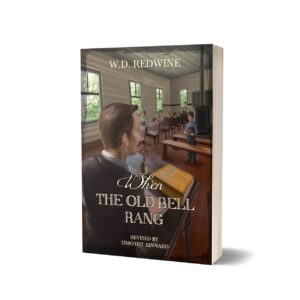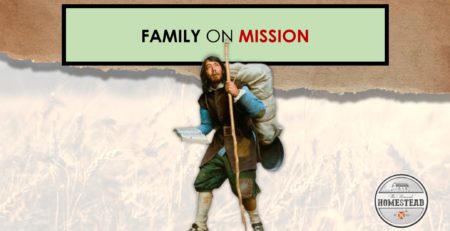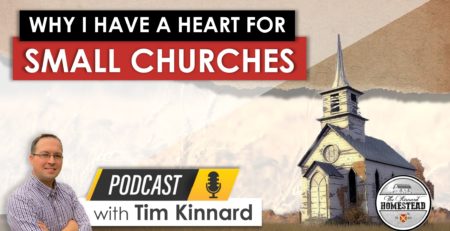The Parable of the Chinese Farmer
There’s an old Chinese parable dating as far back as the 2nd century B.C. about an old Taoist farmer who lost his horse. The name the parable is traditionally known by is “The Parable of the Chinese Farmer,” or, alternatively, “The man who lost his horse.”
The story originates from a collection of old Chinese philosophical essays known as the Huainanzi. The parable itself speaks toward the old Taoist view of “fate” and the importance of maintaining a humble view of the ever-unfolding details of our experiences, recognizing that what we perceive at first to be, say, a streak of “good fortune” (or, to speak in a biblical category, we can say what we perceive to be a “blessing”) may turn out not to be, and what we initially perceive to be “misfortune,” or a curse, may, in fact, prove, in the end, to be a blessing.
The story goes like this:
“Once upon a time there was a Chinese farmer whose horse ran away. That evening, all of his neighbors visited him to commiserate, saying, “We’re so sorry to hear your horse has run away. This is most unfortunate.” To which the farmer simply replied, “Maybe.”
The next day the horse came back bringing seven wild horses with it, and in the evening, everybody came back and said, “Oh, what luck! What a great turn of events. You now have eight horses!” The farmer again simply said, “Maybe.”
The following day the man’s son tried to break one of the wild horses, and while riding it, he was thrown and broke his leg. The neighbors came again and said, “Oh dear, we’re so sorry to hear about your son’s leg. That’s truly unfortunate.” The farmer simply responded, “Maybe.”
The next day an enlistment officer came to the farm looking to draft young men into the army, and upon seeing the boy’s broken leg, he left the farm allowing the boy to stay with his father. Again all the neighbors came around and said, “How lucky you are that you can keep your son! Isn’t that great!” Again, the farmer simply said, “Maybe.””
The story ends with that leaving the reader wondering how it will all turn out from there. Though things seem to end on a positive note, the point is who’s to say there won’t be some other twist in the unfolding plot-line of the farmer’s life that may reveal the boy’s ability to stay at home with his father instead of being recruited into military service wasn’t the best thing that could have happened. We just don’t know.
Until the final sentence of the great novel that is our life has been written, we don’t ultimately know the full impact of all our decisions and our experiences.
It reminds me of how Aristotle once said that young people, because of their youth, cannot truly know happiness because, as he says, what is needed to be happy is, “not only complete virtue but also a complete life, since many changes occur in life, and all manner of changes, and the most prosperous may fall into great misfortunes in old age.”
The reverse could also be true. A young person should not assume his life or a particular season of his life is necessarily as bad as it seems. Give it a little time and you may discover it’s all leading to a much greater benefit. Be patient. Be humble. I would even say, have faith in the great plan of providence to unfold the way it is intended to unfold.
Of course, I would argue, the best way of thinking about providence isn’t to be found in the old writings of Taoist or Aristotelian philosophers but in the inspired counsel of God’s Word, the Bible. Romans 8:28 says, “And we know that for those who love God all things work together for good, for those who are called according to his purpose.” Philippians 1:6 says, “And I am sure of this, that he who began a good work in you will bring it to completion at the day of Jesus Christ.”
There are so many verses we could point to—so many examples of biblical figures we could talk about. There are men like Job who lost everything through a series of incredibly tragic events but later, by the end of the story in Job 42:12, the Lord, quote, “blessed the latter days of Job more than his beginning.”
Or, there’s men like Joseph whose brothers conspired to throw him in a pit in the wilderness to be left for dead, only to decide instead to sell him into slavery to make a profit, resulting in him relocating to Egypt, leading to his advancing in favor in Pharoah’s kingdom, earning a high rank, and saving the entire region, including his own brothers, from starvation during a famine. Later reflecting on his whole experience, Jospeh would say, speaking to his brothers, “What you meant for evil against me, God has meant for good, to bring it about that many people should be kept alive, as they are today.”
There’s the story of Esther, the story of Ruth, the story of David, and on and on—all modeling God’s work through apparent misfortunate to bring about abundant blessing for his people.
And I do want to emphasize, the promise of God’s providence working out for good is reserved specifically for God’s people. Again, Romans 8:28 says, …all things work together for good, for those who are called according to his purpose.” Those are believers, chosen and redeemed to glorify the Lord.
That’s not to say God isn’t providentially working out an end story for unbelievers too, because he is. However, we can’t describe the end story for those folks as “good.” However well they may seem to have it now, we’re told, things for them eventually take a nasty turn, as things culminate at a great White Throne of Judgement, Revelation 20.
In the end, we have to trust God’s plan of providence to run its course, and in the process, I would say, we need to trust in God’s plan of redemption too, understanding, it all turns out for good for those who are called, and, practically, for those who answer the call, of his saving purpose, which relates to the great Gospel message.
So, as you go about your own life story, like the old Chinese farmer, encountering gains and losses, progress and setbacks, all I can say to those spectators out there who want to judge your circumstances as either great fortune or terrible misfortune, all I’ll simply say to them is, “Maybe.”
We need to see where the Lord takes it from here. So, be humble. Be patient. Trust God.






















